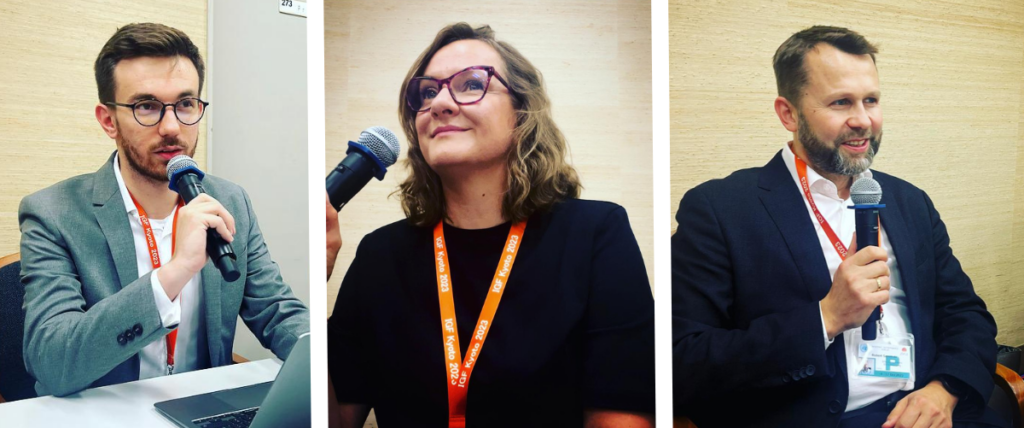This year’s Internet Governance Forum program included a panel organized by Izba Gospodarki Elektronicznej, with CK LEGAL as a content partner.
We contributed to the global debate on internet development in Kyoto, discussing the topic “AI in the courts an opportunity for economic proceedings?“.
Participants in the conversation included: Rafał Wieczerzak as the on-site moderator, Magdalena Golonka as the online moderator, Anna Pietruszka as one of the panelists, and also Konrad Wasik, dr Gabriela Bar, and Robert Sowiński.

Read THE KEY TAKEAWAYS AND CALL TO ACTION POINTS from our panel discussion:
2 key takeaways
- The implementation of AI in the judiciary is a universal and global issue. The differences between legal systems remain in the background. We should develop postulates and international legal and ethical standards for the use of AI in the judiciary.
- The use of AI in alternative dispute resolution will be of great benefit to business. Being aware of the chances of winning a dispute and therefore receiving a predicted outcome and/or an assessment of the strength of a party’s arguments and position from AI will reduce the burden on the courts. We should use AI to issue non-binding resolutions that will guide a party whether to take the case to court or, for example, to settle.

2 call-to-action points
- The implementation of AI in the courts should be progressive. In the first step we should start by using AI to perform routine, repetitive and time-consuming activities. As a second step, it would be good to implement solutions based on hybrid intelligence. While implementing the AI driven solutions we have to review carefully every activity that is processed in the court and analyze what can be replace in a first place. This tech transition must be done step by step.
- We expect from the local governance and the institution such as European Union to support jurisdiction to fulfil the tech gap between the business needs and justice. We should aspire to cooperation between business and public authorities, but at the same time create clear and transparent rules for such cooperation. We must be aware of the temptation of private entities gaining access to citizens’ data and attempting to manipulate court rulings using AI systems, e.g. through discrimination. This is the only way to find modern justice.
